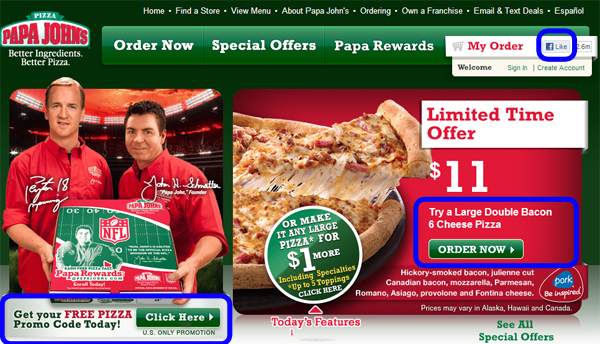- Nov 2, 2012
- By Alicia Bertsche
- In Marketing Strategy and Planning, Content Marketing



We're always thinking, discovering and sharing our knowledge of how to connect with customers in the digital age. Here we share some of those thoughts.

What do you want people to do when they visit your website? It’s a silly question, but it’s one many business owners don’t consider when having their website built. There is a reason you’ve invested time and money into having a website – whether it’s to enable customers online to purchase something you sell, call you, sign up for your e-mail list, become a Facebook fan, follow you on Twitter, or something else entirely. It’s important to address this issue, because if you’ve got plenty of web traffic but no leads, you’re missing a huge opportunity!
If this sounds like you, I have good news! There is a remedy for your situation. It’s called the Call To Action (CTA) and it’s a key part of any internet marketing/content marketing strategy. The Content Marketing Institute calls it, “the trigger that leads the visitor to engage in a meaningful next step with your organization.” Let’s look at an example:

In the above screenshot, look at the items circled in blue. Notice they are all some sort of button that leads the visitor to “do” something rather than just “look at” something. They all have action verbs associated with them – get, click, try, order, like. You might not be running a pizza shop, but you can apply these tactics to your website just the same. Here’s how:
1. Determine what you want people to do when they visit your website– What are you most hoping to accomplish with your website? In the Papa John’s example above, they want people to:
What does this look like for your company? How can you make it more clear what you want customers to do while visiting your website?
2. Determine what your customers want to do when they visit your website – What do you think customers want to do when they come to your website? Is it get a quote? Is it place an order? Download user manuals? What does your customer need from you? Take a poll of your website visitors by using a free service like SurveyMonkey and ask them what they’re looking for. Once you’ve determined what visitors want and where they’re going on your website you can then take steps to make sure customers get to what they’re looking for.
3. Placement – Calls To Action are most effective when they’re placed on pages that customers visit most. If you place A Call To Action on your “Contact Us” page, but nobody visits that page, what good is it? To determine what your most-visited pages are, take a look at your website analytics.
4. Be Obvious – Don’t bury your CTAs; make sure they stand out. Put them in a prominent position above the fold that fits with the design of the page, in a bright color that contrasts with your website’s color scheme and a size that makes them highly visible.
These four keys should help get you started creating some valuable Calls To Action on your website. If you've got some great CTA success stories to share, drop us a comment in the box below1!
We know what it takes to create meaningful connections with customers.
Subscribe to our newsletter and start thinking with Cleriti.

